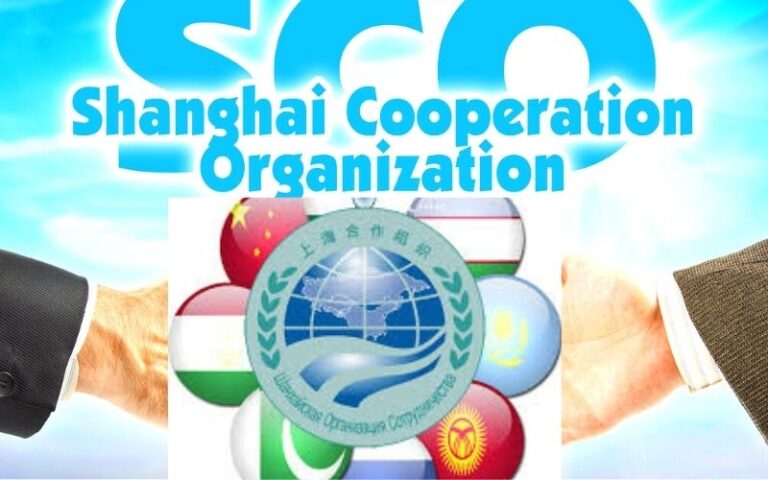Impact of Tobacco on Young Community
By Omed Hajjana
As we know, smoking is a widespread issue that not only poses significant effects on people’s health but also a threat to the well-being of our society.
During Adolescence, when youngsters are more susceptible to experimentation and peer pressure they get indulged in it.
Tobacco contains a chemical that is highly addictive called Nicotine which makes it difficult for new smokers to quit smoking as they get addicted to the nicotine and this could eventually end up resulting in damaging both their physical and mental health.
Smoking has extreme consequences on physical as well as mental health, young people who smoke are exposed to a range of tobacco-related diseases.
Tobacco smoke has a number of toxicological and poisonous chemicals in it e.g., nicotine, carcinogens, carbon monoxide, and tar.
These substances can destroy the whole body system of a normal human being by damaging the lungs, heart, causing cancer and many other diseases.
Many researchers reported that more than 1200 children start smoking in Pakistan every day and there are at least 20 Million under-aged in the country, where the legal age of smoking is 18 years.
Here are some key points of social impacts of tobacco consumption on society:
● The health and economic burden.
● Impact on individual budgets.
● Promoting financial well-being.
● Encouraging smoke-free lifestyles.
● Stigmatization and Discrimination.
Our main concern is to shed light on the harmful effects of cigarette smoking on young people and emphasize the importance of prevention and education to protect our future generations.
Nicotine, found in cigarette smoke can impair the memory, attention span, and concentration of a youngster.
Young people who are involved in tobacco are more likely to experience difficulties in learning, lower grades, and reduced academic achievements compared to their non-smoking fellows, consequences can have a lasting impact on their educational career and future opportunities.
People especially, youth who smoke may suffer from frequent respiratory infections, coughing, shortness of breath, and decreased physical fitness.
The impact of tobacco consumption extends beyond the smoker themselves. Smokers can cause damage to others and put their lives in danger.
Smoke exhaled by a person who smokes is second-hand smoke which is of high concern for the health of those who are around the smoker.
From addiction and academic failures to health and emotional challenges the impact of smoking on the young generation is profound and far-reaching.
It is important for us to prioritize prevention against smoking and education to empower the young generation.
It is mandatory to create an environment for smoke-free choices and provides alternatives to tobacco products.
Jointly, we can fight the detrimental effects of tobacco smoking on young people and ensure a healthier, safer, and brighter future for our generations.
In Pakistan above 170,000 people die because of tobacco products each year and Pakistani children between the ages of 6-15 years start smoking every day.
This is happening because of its cheap prices and easy accessibility.
In some societies because of the stigmatized behavior towards smokers, young smokers may face social discrimination and disapproval, which can lead them towards lower self-esteem, and feelings of loneliness and they can also find difficulties in building relationships with non-smokers.
Pakistan is combating the adverse effects of tobacco consumption on public health which is contributing to different health issues, such as respiratory diseases, cardiovascular disorders, and various types of cancers.
Moreover, it imposes an economic burden on the individuals and the health sector.
It was reported that the economic burden attributed to tobacco-related diseases was more than Rs 192 billion.
Smoking-attributable expenditure on cardiovascular disease was 123 billion Rs which was 69% of the total economic cost of tobacco-related diseases in Pakistan.
The economic impact of tobacco smoking is a significant concern beyond a person’s health consequences. It leads to decreased productivity in the workforce. Smokers experience frequent illnesses and have higher rates of absenteeism compared to others, which could directly affect economic growth and efficiency.
Premature deaths caused by tobacco-related diseases lead to a loss of skilled individuals, depriving the economy of their expertise and experience. This loss of human capital hampers productivity and can have long-term effects on the economic system.
As an expensive habit, tobacco smoking can drain individuals’ budgets, especially those with limited resources. High tobacco taxes can serve as a potential barrier to making cigarettes less affordable and deterring prospective smokers.
Smokers may reconsider their spending and prioritize their finances if the costs of tobacco products are increased due to the implementation of heavy taxes.
In this way by reducing or eliminating their tobacco expenses individuals can allocate their funds towards better education, health, and personal savings.
Raising tobacco taxes empowers people to make smarter decisions. As cigarettes get more expensive, smokers re-evaluate their priorities and find healthier options.
Smokers can improve their overall financial well-being by quitting or reducing smoking.
Instead of buying tobacco products, they can invest in education or skills development, build an emergency fund, or achieve personal goals can be done with the money they save.
This budget management can create a path to financial stability and long-term success in an individual’s life.
Smoking affects people, families, and society as a whole. We can address these effects by raising our voices for the implementation of heavy taxes on tobacco products. Increased prices act as a disincentive, helping in lowering smoking rates and defending the health of our youth.
Additionally, the revenue generated can be used to fund the health sector which will further support a society that is healthier, well-informed, and smoke-free.
Tobacco consumption causes an annual economic burden of 615 billion which is 1.6% of Pakistan’s GDP. On the other hand, the revenue generated from the tobacco industry is 120 billion.
However, we need an immediate increase in the prices of tobacco products in Pakistan, as tobacco products are being sold at lower prices compared to other countries in South Asia.
We can alleviate this burden on public health resources by increasing taxes on tobacco products and redirecting those funds toward promoting preventive measures.
In addition, promoting smoke-free lifestyles creates a positive impact on future generations, fostering a culture of well-being and responsibility.
This change in social norms can bring a healthier environment, less second-hand smoke exposure, and better overall public health.
The government is expected to collect additional revenue of at least Rs 60 billion this year after increasing the federal excise duty (FED) on tobacco products.
Pakistan ranks highest in tobacco-consuming countries.
We need immediate efforts from the government to curb smoking. Tobacco taxes aren’t just good for economic stability, but it helps build a smoke-free society.
In addition to that, promoting a smoke-free society creates a healthy culture for our future generations. Implementation of heavy taxes on tobacco products is the most effective way to reduce tobacco consumption.
The revenue generated from high taxation on tobacco products can be a powerful tool in funding the public health sector. These funds can also be allocated towards anti-tobacco campaigns, tobacco cessation programs, and research on tobacco control.
Our government can empower individuals to quit smoking by investing in these kinds of initiatives. In this regard, we request the government to impose heavy taxes on tobacco products and save the future of Pakistan.
An increase in tax on tobacco products on their retail price on a regular basis can support the economy and protect from the incidence of tobacco-related diseases.
The social impacts of tobacco smoking necessitate decisive action to protect the health of our people and empower them to manage their lives effectively.
We can discourage smoking, by advocating for the implementation of heavy taxes on tobacco products, which could promote financial well-being and alleviate economic burden. Through it, individuals can prioritize their finances, reduce tobacco expenses and save money for good purposes.
We request the government to implement these recommendations which will not only help in generating much-needed revenue but also reduce tobacco consumption.
Advocacy drives are crucial regarding the detrimental effects of smoking, advocating for higher tobacco taxes, and creating a healthier and financially sound Pakistan for all citizens.
However, we need an immediate increase in the prices of tobacco products in Pakistan, as tobacco products are being sold at lower prices compared to other countries in South Asia.
We can alleviate this burden on public health resources by increasing taxes on tobacco products and redirecting those funds toward promoting preventive measures.
In addition, promoting smoke-free lifestyles creates a positive impact on future generations, fostering a culture of well-being and responsibility.
This change in social norms can bring a healthier environment, less second-hand smoke exposure, and better overall public health.
The government is expected to collect additional revenue of at least Rs 60 billion this year after increasing the federal excise duty (FED) on tobacco products.
Pakistan ranks highest in tobacco-consuming countries.
We need immediate efforts from the government to curb smoking. Tobacco taxes aren’t just good for economic stability, but it helps build a smoke-free society.
In addition to that, promoting a smoke-free society creates a healthy culture for our future generations. Implementation of heavy taxes on tobacco products is the most effective way to reduce tobacco consumption.Custom Intelligence Confiscates Smuggled Cigarettes Worth Millions
The revenue generated from high taxation on tobacco products can be a powerful tool in funding the public health sector.
These funds can also be allocated towards anti-tobacco campaigns, tobacco cessation programs, and research on tobacco control.
Our government can empower individuals to quit smoking by investing in these kinds of initiatives. In this regard, we request the government to impose heavy taxes on tobacco products and save the future of Pakistan.
An increase in tax on tobacco products on their retail price on a regular basis can support the economy and protect from the incidence of tobacco-related diseases.
The social impacts of tobacco smoking necessitate decisive action to protect the health of our people and empower them to manage their lives effectively.
We can discourage smoking, by advocating for the implementation of heavy taxes on tobacco products, which could promote financial well-being and alleviate economic burden. Through it, individuals can prioritize their finances, reduce tobacco expenses and save money for good purposes.
We request the government to implement these recommendations which will not only help in generating much-needed revenue but also reduce tobacco consumption.
Tobacco consumption is crucial to the detrimental effects of smoking, advocating for higher tobacco taxes and creating a healthier and financially sound Pakistan for all citizens.
The author is a reporter and researcher in NewzTodays, he covers Public Health, Environment, Climate Change








